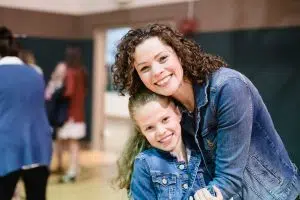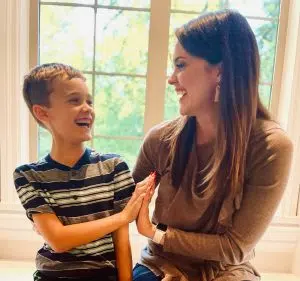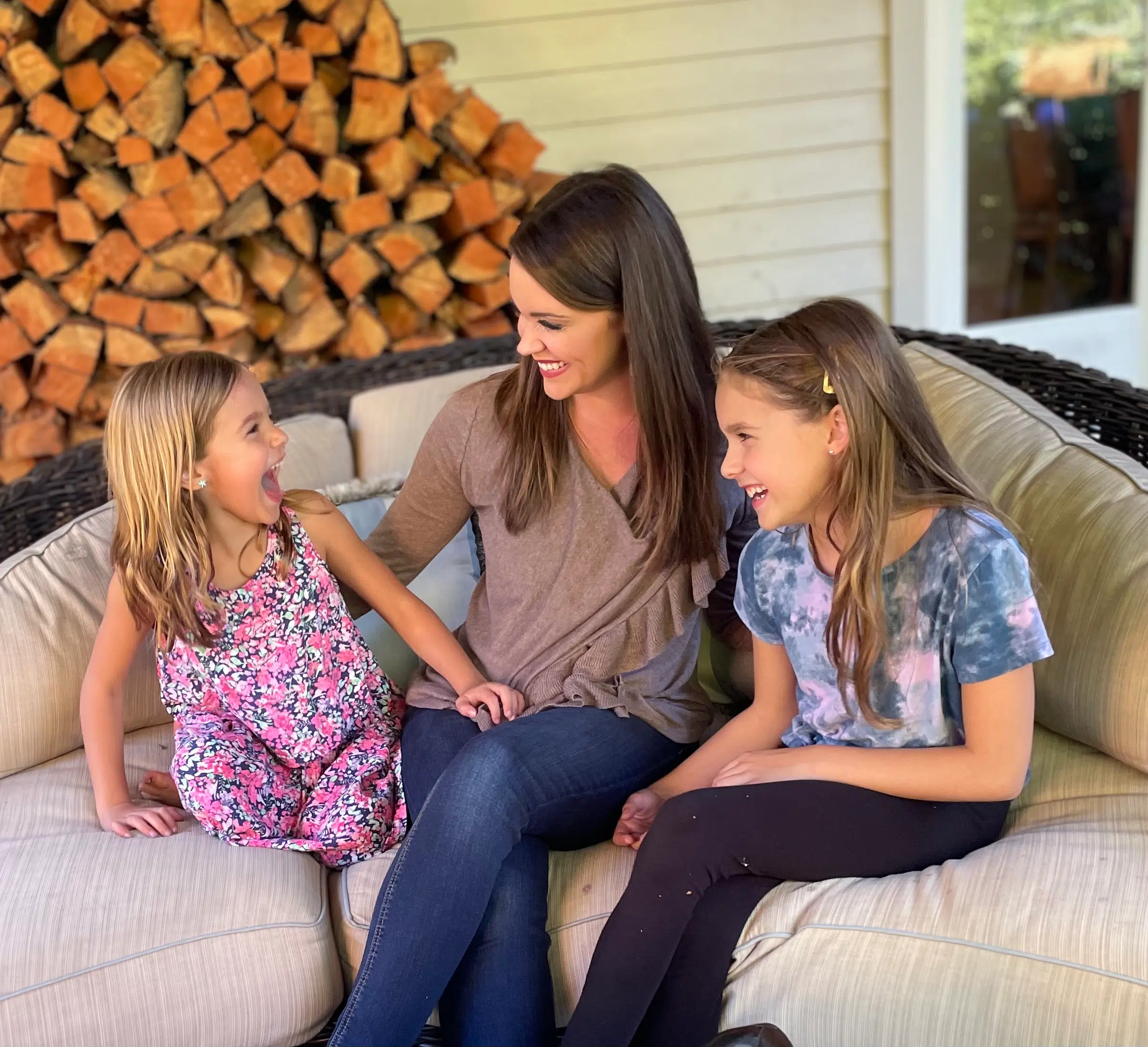Almost every child will experiment with misbehavior, especially during stages of developmental milestones. Making mistakes is normal, inevitable, and even necessary for a child’s growth and learning.
Sometimes, when we see our children make the same mistakes again and again, or willfully misbehave, it can make us feel powerless. We don’t always know how to best respond, and sometimes, our best-intended response to regain control can backfire and cause a further rift in the child-parent relationship, inspire more mistakes, and ultimately fuel the misbehavior cycle.
Using these key principles from the Love & Logic philosophy founded by Jim Fay and Foster W. Cline, M.D., especially in the aftermath of misbehavior, you can help your child learn to grow through their mistakes and break them out of the cycle of misbehavior.
This content is sponsored by The Bear Creek School.
Shared Control
 Children, like adults, want to feel like they are in control of their lives. For some children, the source of misbehavior is feeling powerless. Sharing control, when appropriate, is a preventative way to avoid unnecessary power struggles that can lead to misbehavior. If there are certain rhythms in your day with your child that you notice struggle and fighting break out, before this occurs practice giving your child a bit more control. Love and Logic teaches how letting your child participate in the decision-making process of their life frees them to feel more comfortable and secure in cooperating with you.
Children, like adults, want to feel like they are in control of their lives. For some children, the source of misbehavior is feeling powerless. Sharing control, when appropriate, is a preventative way to avoid unnecessary power struggles that can lead to misbehavior. If there are certain rhythms in your day with your child that you notice struggle and fighting break out, before this occurs practice giving your child a bit more control. Love and Logic teaches how letting your child participate in the decision-making process of their life frees them to feel more comfortable and secure in cooperating with you.
One strategy is to provide choices, specifically ones that you are already comfortable with your child selecting.
For example, many children struggle with transitions, such as turning the TV off when it is time for dinner. By planning ahead to give them choices, you can set your child up for success helping them see that they have more control over the way things turn out.
An example of no shared control would be, “Please turn the TV off now, dinner is ready.” Where as an example of shared control could be, “Okay, dinner will be ready soon. Would you like to turn the TV off now, or in 5 more minutes?”
Hint: You already knew dinner would be 5 more minutes
You can replace many of the usual patterns that inspire misbehavior by giving your child as many opportunities for controlled choices as you can think of. “Would you like to do your reading first, or math homework?” “We have two options for dinner. Would you like to choose?”
Hint: After ten seconds, if your child still hasn’t made their decision, you choose for them.
Every time we let our children make their own safe choice instead of telling them our demands, we are affirming their agency and showing them we care about what they feel and want, all while still maintaining healthy limits and expectations. Especially with children that are strong-willed, treating them as a teammate in this way will build up their sense of agency, making it easier for them to feel comfortable when it comes time for you to take control.
Shared Thinking
In an ideal world, we would hope that our children see the cause and effect of their choices extremely clearly. But the truth is there is much noise that takes away from a mistake turning into a learning experience. While as parents we cannot control the thoughts that our children have in their own self-reflection of their behavior, there are several easy ways that we can guide them in a way that emphasizes their ability to learn from their mistakes.
takes away from a mistake turning into a learning experience. While as parents we cannot control the thoughts that our children have in their own self-reflection of their behavior, there are several easy ways that we can guide them in a way that emphasizes their ability to learn from their mistakes.
Our words carry a lot of weight in the way we teach our children to handle mistakes and unpack their personal conflicts. In the aftermath of your child making a mistake, say to them, “What happened?” instead of “Why did you…” Although it seems very simple, this can be highly effective. Children don’t always have a reason as to ‘why’, and when prompted it can typically take the route of trying to find a good excuse or shifting blame to someone else, limiting their ability to see the issue within their control.
It is unlikely that any parent wants their child to view themselves only as a victim of circumstance, but children often see that as the most likely way of framing a situation to avoid punishment. When we instead ask, “Can you tell me what happened?” We give the child the opportunity to think out the behavior that brought about the incident in a neutral environment. When we remove the fear of punishment and help them review what happened in a neutral environment, it gives them a better foundation to seeing themselves as the empowered problem-solvers we know they can be!
Shared Decision Making
 After this, avoid lecture or punishment that would take the child’s attention away from their misbehavior. Love and Logic recommends providing empathy, asking questions, and handing the problem back to them in loving ways. This gives your child opportunity for their own decision making.
After this, avoid lecture or punishment that would take the child’s attention away from their misbehavior. Love and Logic recommends providing empathy, asking questions, and handing the problem back to them in loving ways. This gives your child opportunity for their own decision making.
For example:
Provide genuine empathy, and hand the problem back in loving ways: “Wow, this is really hard, I’m sorry this happened. What are you going to do about it?” (or: “How can you make this right?”)
Ask questions that let your child be a part of the ‘consequence’ decision-making: “How will we make sure this won’t happen again?” and then, “What should we do if this happens again?”
Hint: If “I don’t know” is all your child can say to any of these questions, provide genuine empathy and let them work through it. For example: “I’m sorry, that must be really hard to not know. Keep thinking on it, and you can tell me what you come up with when we talk next.”
Children, like anyone, learn best from the results of their own decisions. With this process, children learn to recognize that the source of the trouble they are experiencing is their misbehavior.
Oftentimes, at the root of an unwanted behavior is an unmet need for a sense of belonging and significance in the lives of those important to us. When a child experiments with misbehavior, it might simply be a way of trying to connect with you, and by using empathy to understand the underlying need, you proactively help them break the cycle of misbehavior. Allowing them to contribute to the decision-making that goes on, when appropriate, shows them that they have significance in our lives, and helps them take ownership of their own decisions and behavior. In doing so, they develop the thought processes that help them grow through their mistakes.
By Kristen Gephart. Kristen is Lower School Division Head at The Bear Creek School. She is passionate about the mission of The Bear Creek School and loves the intersection of faith and learning that is pursued here. Kristen believes the impact of a community of adults invested in students’ lives at a young age can impact them forever! She holds a B.A. Speech Communication at the University of Washington and an M.I.T. at Seattle University.
At The Bear Creek School, a Christian classical education serves as a powerful framework for teaching and inspiring students. It exposes students to quality by introducing them to the great minds, great works, great events, great discoveries, and great art of the centuries. We believe knowledge which endures is worth student attention; we believe studying minds of the past helps us understand and shape our future; we believe wisdom is developed by reflectively considering ideas in light of the Christian worldview.


















